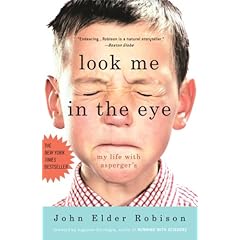Sometimes, when I’m writing, I just don’t know where to begin. A quote is nice as a hook, and so is a well-crafted topic sentence. Once I figure out the beginning, I can usually organize my thoughts well enough to write a fairly decent piece. But sometimes the ending gives me trouble. Or my transitions are choppy. It doesn’t always flow.
Nigel has trouble with all of these things, every time he writes. He usually has plenty to say (these days), but organizing all of his thoughts is difficult for him. He is back in regular school, but because it’s part-time, some of his subjects still fall under the homeschooling umbrella. Language Arts is one of them. Fortunately, I used to be a writing tutor, so I’ve got some experience in figuring out how to teach someone to write. I’ve worked with ESL (English as a Second Language) students, dyslexic students, and other students with special needs. But Nigel is my first autistic student.
Last year, I started off teaching him to type, which went very well, and then he wrote a few small paragraphs as reviews of educational videos he had watched. The trouble started this year when I had to explain to him that cutting and pasting paragraphs from Wikipedia articles was not an acceptable way to write an essay. But if I stop to think about it, that way of learning to write is exactly the way he learned to talk – by using words he had heard somewhere else. Yes, with writing it’s plagiarism, but I like to think of it as “echolalic writing.” So, just as he learned to talk when his speech was predominantly echolalic, I slowly guided him to use his own words in his writing. We began with a narrative essay, then an imaginative one, both three paragraphs long. Once he realized that he could write a full essay with his own words, I then upped the ante to a five-paragraph persuasive essay. He chose the topic – Stricter Rules Against Bullies. I helped him draft an outline, and then he typed the first draft.
One of the necessities of a persuasive essay, of course, is addressing the opposing viewpoint. Nigel, with his theory-of-mind challenges, declared, “I can’t mind read! How should I know what the opposing viewpoint is?!” And of course, that made all kinds of sense, coming from an autistic mind. I should have realized that the concept would have been difficult for him. After explaining that he should try to think of how he would feel if he were the other person, I realized that I was getting nowhere, and Nigel was only getting more frustrated. I finally had a brainstorm, albeit an obvious one. “Nigel,” I said, “read one of your reasons that you listed for why there needs to be stricter rules against bullies, and think of what you would say to someone who disagreed with you.” He took that and ran with it.
It’s Spring Break now, so he’s not writing, but when we get back to it in a week and a half, he’ll be working on his first essay involving research and citing sources. It’ll be a challenge for him, and will probably take him a few weeks to do it, but I think he can. I remember when he was not functionally verbal, and how glad I was that he could read, even though it was hyperlexia. I thought how wonderful it would be if he could learn to write, since he could not speak much, and he then could communicate by writing. I remember thinking that if he could write, it would liberate him to no end. And even though he can talk now, I still feel that way about him writing. He may have some difficulty with conventions, transitions, and thinking of good topic sentences. It hurts his hand to write with a utensil, which is why I knew I had to teach him to type. But now he’s writing, and that will take him everywhere.


